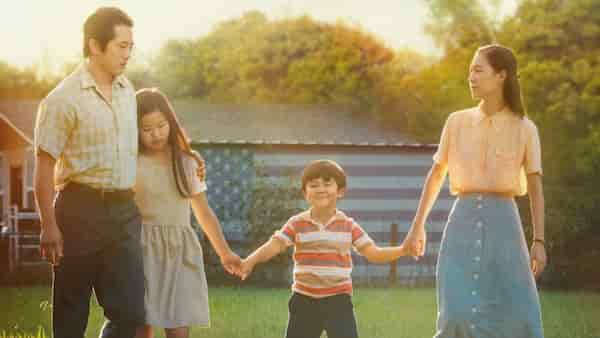Minari review: Organically emotive, remarkably relatable and effortlessly tear jerking
Minari is hauntingly truthful- there are no big victories, no sudden turns of fate and no immediate acceptance in a state that is just starting to see budding immigrant communities.

Last Updated: 12.00 AM, May 12, 2021
The sheer essence of Lee Isaac Chung’s Minari is enough to make an immigrant tear up, without even having understood how layered a narrative the filmmaker has built. Drawing from his own experiences, Chung has brought to life the inherent struggle of an immigrant family trying to grab the fabled American dream by the throat.
Set in the rural hinterlands of Arkansas in the 1980s, the film follows the Yi family - South Korean immigrants who have recently moved to a lush landscape that the father, Jacob (Steven Yeun), wants to turn into a farm. His conviction of his future vision is unwavering, but his wife Monica (Yeri Han) does not share his enthusiasm. This causes the two to erupt in furors and places an overwhelming amount of tension on their marriage, witnessed by their children Anne (Noel Kate Cho) and David (Alan Kim). The two ignore their parents’ crumbling relationship, trying to grapple with their relocation internally.
In the midst of trying to make ends meet, David’s pre-existing heart condition becomes a cause for concern, especially for Monica. The couple decides to bring Monica’s mother, Soonja (Youn Yuh-jung), to the United States to provide childcare, though the former’s intention is also rooted in the memories of her native land that she yearns to return to. Minari is hauntingly truthful- there are no big victories, no sudden turns of fate and no immediate acceptance in a state that is just starting to see budding immigrant communities. This sense of dislocation and loneliness pervades the Yi family so much that even just the glimpse of traditional South Korean vegetables is enough to ache Monica’s heart.
Soonja, who is not well received by a highly Americanised David, breaks every shackle that forces her to fit the mould of an ideal grandmother. She wears men’s clothes, indulges in occasional profanity, and - contrary to David’s idea of a grandmother that he has entirely based on his experiences in the United States - she doesn’t even bake cookies. Over time, the audience becomes privy to a delicately curated but beautifully portrayed bond that Soonja and David begin to share. Though his grandmother ‘smells like Korea’, it is his grandmother after all.

Minari does not shy away from threading its visually stunning narrative with glimpses of racism that are rife in American communities. Even David’s friends border on being racists, Monica is viewed as nothing more than cute, and casually offensive remarks are made about the Korean language. Added to this dismal mix is Jacob’s failing effort of turning their farm into a lucrative landscape that saves the family from destitution. With Monica and Jacob’s marriage almost falling apart, it is a tragedy that befalls Soonja that makes them realize the importance of family, especially when family is all you have in a strange country.
Organically emotive, remarkably relatable and effortlessly tear jerking, the tale of Minari is one that immigrants across the globe have lived first-hand. Through the movie, Chung has tenderly voiced the agony of starting over in a foreign land, felt by many but overcome only by a few.

 Premium
Premium